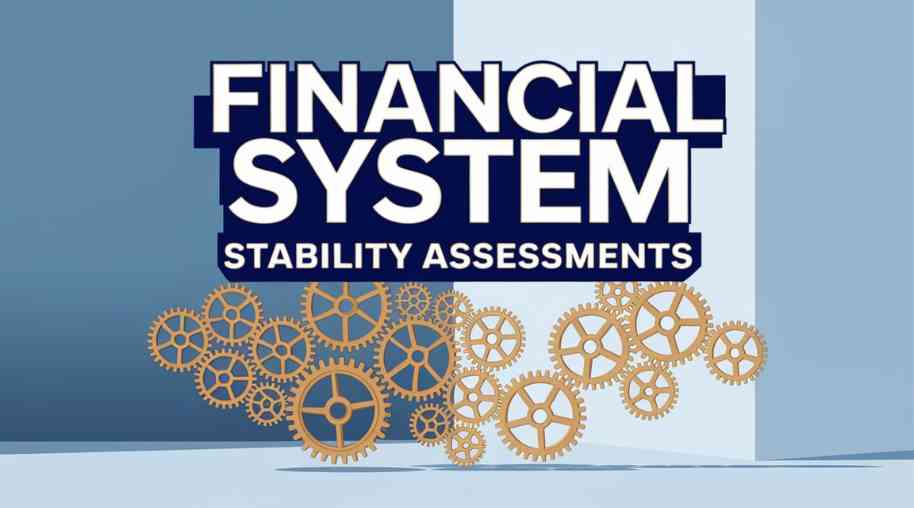FSSA Full Form-Financial System Stability Assessments
by Shashi Gaherwar
0 2448
Introduction
Financial stability is vital for the smooth functioning of economies and markets. Financial System Stability Assessments (FSSA) evaluate risks and vulnerabilities in a country’s financial sector, helping governments and financial institutions ensure economic resilience, prevent crises, and strengthen regulatory frameworks. This article explores the objectives, process, and impact of FSSAs on global and national financial security.

What are Financial System Stability Assessments?
A Financial System Stability Assessment (FSSA) is a comprehensive evaluation of a country’s financial health, typically conducted by international bodies like the International Monetary Fund (IMF) or national regulatory authorities. It identifies vulnerabilities, assesses the strength of financial institutions, and provides recommendations to enhance stability.
Objectives of Financial System Stability Assessments
- Identifying Financial Risks: Assessing systemic risks that could lead to financial instability.
- Evaluating Banking Sector Health: Examining capital adequacy, liquidity levels, and risk management strategies.
- Strengthening Regulatory Frameworks: Analyzing the effectiveness of financial regulations and supervision.
- Crisis Prevention: Providing early warning indicators to prevent financial crises.
- Ensuring Market Confidence: Enhancing investor and public trust in financial institutions.
Key Components of Financial Stability Assessments
- Macroeconomic and Financial Risk Analysis: Reviews macroeconomic conditions like inflation, interest rates, and GDP growth, and their impact on the financial sector.
- Banking Sector Analysis: Focuses on:
- Capital Adequacy: Ensuring banks have sufficient capital buffers.
- Liquidity Management: Assessing banks’ ability to meet short-term obligations.
- Asset Quality: Evaluating loan portfolios for risks of non-performing loans (NPLs).
- Stress Testing: Simulates adverse economic scenarios to measure resilience against market crashes, credit risks, and economic downturns.
- Regulatory and Supervisory Framework Review: Analyzes:
- Central Bank Policies
- Banking Regulations
- Risk Mitigation Frameworks
- Financial Market Infrastructure Assessment: Evaluates the efficiency of payment systems, securities markets, and foreign exchange markets for smooth operations.
Who Conducts Financial System Stability Assessments?
- International Monetary Fund (IMF): Conducts assessments through its Financial Sector Assessment Program (FSAP), evaluating global financial risks and recommending policy measures.
- Central Banks and Financial Regulators: National authorities perform periodic assessments to monitor and enhance financial stability within their jurisdictions.
- World Bank and Other Financial Institutions: Provide guidance and technical assistance, particularly in emerging economies.
Importance of Financial Stability Assessments
- Preventing Financial Crises: Identifies vulnerabilities to prevent bank failures, stock market crashes, and economic recessions.
- Enhancing Investor and Public Confidence: Reassures investors and the public, fostering investment and economic growth.
- Strengthening Economic Resilience: Enables adaptation to economic changes and global financial disruptions.
- Supporting Policymakers and Regulators: Guides policymakers in shaping policies and improving the regulatory environment.
Challenges in Conducting Financial Stability Assessments
- Data Accuracy and Availability: Requires accurate and timely data from financial institutions for reliable assessments.
- Rapidly Changing Financial Risks: New financial products and innovations introduce unforeseen risks.
- Global Economic Interdependencies: Interconnected financial systems make isolating national stability challenging.
- Regulatory Compliance Issues: Implementing recommendations may require significant regulatory changes.
Future Trends in Financial System Stability Assessments
- Artificial Intelligence (AI) and Big Data: Enhances risk assessment accuracy and predictive analysis.
- Cybersecurity Risk Analysis: Focuses on cybersecurity threats with increasing digital transactions.
- Climate-Related Financial Risks: Integrates climate change risks affecting economies and industries.
- Stronger Global Financial Cooperation: Enhances coordination to manage cross-border financial risks.
Financial System Stability Assessments are critical for maintaining a healthy, resilient, and secure financial environment. By identifying risks, improving regulatory frameworks, and enhancing crisis preparedness, FSSAs ensure global economic stability. Continuous monitoring and innovation will be key to addressing evolving financial risks and ensuring long-term economic resilience.
Further Learning Resources
If you’re passionate about building a successful blogging website, check out this helpful guide at Coding Tag – How to Start a Successful Blog. It offers practical steps and expert tips to kickstart your blogging journey!
For dedicated UPSC exam preparation, we highly recommend visiting www.iasmania.com. It offers well-structured resources, current affairs, and subject-wise notes tailored specifically for aspirants. Start your journey today!

Share:









Comments
Waiting for your comments